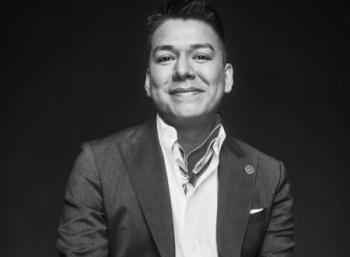Image Caption
Local Journalism Initiative Reporter
Windspeaker.com
With less than one month left for claims to be submitted for compensation under the First Nations Drinking Water Class Action Settlement, class counsel Darian Baskatawang says that as of the end of January, close to 90 per cent of the anticipated 160,000 claims had been received.
“It’s important to note that the class size is an estimation,” said Baskatawang, associate with Olthuis, Kleer, Townshend LLP. “Our estimate of 160,000 individual class members was based on the best actuarial data at the time.”
Baskatawang says proactive measures, including a communications campaign and inclusion of band council confirmation lists, has allowed them to reach 140,000 claimants as of Jan. 31.
A joint order issued February 2023 by the Federal Court and the Manitoba Court of King’s Bench extended the deadline for compensation claims from March 7, 2023 to March 7, 2024.
In December 2021, an $8 billion settlement of two national class-action lawsuits was approved by the Federal Court and Manitoba's Court of Queen's Bench. Those lawsuits had been brought by Tataskweyak Cree, Curve Lake and Neskantaga First Nations.
The settlement covered First Nations and their residents who were subject to a water advisory for at least one year between Nov. 20, 1995 and June 20, 2021. Minors, persons with disabilities, and people who passed away after Nov. 20, 2017, are also eligible for compensation, which can be applied for by their representatives.
First Nations that met the criteria initially had until Dec. 2, 2022, to opt into the settlement in order to receive a no-strings attached amount of $500,000. The band would also get an amount equal to 50 per cent of whatever compensation amount their residents received.
At this point, says Baskatawang, 227 First Nations have submitted band council acceptance resolutions to formally opt-in to the settlement. That number is expected to rise before the deadline.
Payments began rolling out in August 2023 for claims for individual damages. Compensation ranges from $1,300 to $2,000 for each full year that the individual lived in a community that was under a drinking water advisory and based on the type of water advisory they experienced and the remoteness of their community.
Claims submitted between March 8, 2023, and March 7, 2024, will be assessed with eligible payments processed after March 7, 2024.
A second individual category is for specified injuries compensation, which will come from a fund totalling $50 million. Individuals making the claim must show they suffered the injury and it was caused by using the water during the drinking water advisory or by restricted access to safe water caused by the advisory. Claims can only be made on drinking water advisories issued after November 2013.
Specified injuries claims will be processed after the claim’s deadline because the compensation amount for each eligible individual depends on the total number of eligible claims received.
“Specified injuries claims…can only be determined once the claim period closes,” said Baskatawang. “However, every individual who is determined as eligible will receive compensation.”
Community claims will be processed before specified injuries claims.
The settlement included an infrastructure commitment of at least $6 billion to support reliable access to safe drinking water on reserves.
The First Nations Drinking Water Class Action Settlement also included the creation of a $400-million First Nations Economic and Cultural Restoration Fund and the creation of a First Nations Advisory Committee on Safe Drinking Water. It is from this fund compensation for impacted First Nations and impacted individuals is to be paid.
The settlement does not impact the rights of those who suffered boil water advisories outside the specified time-length and time frame from pursuing their own legal recourse.
Claim forms and more information are available at https://firstnationsdrinkingwater.ca/. Class counsel is also available free of charge at counsel@firstnationsdrinkingwater.ca

